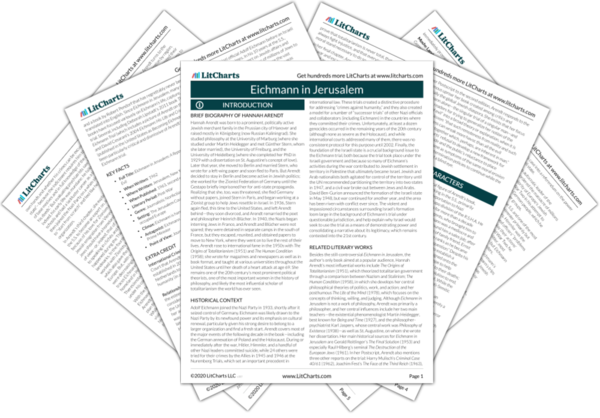Zionism Quotes in Eichmann in Jerusalem
True it was that the Jewish people as a whole had not been organized, that they had possessed no territory, no government, and no army, that, in the hour of their greatest need, they had no government-in-exile to represent them among the Allies (the Jewish Agency for Palestine, under Dr. Weizmann’s presidency, was at best a miserable substitute), no caches of weapons, no youth with military training. But the whole truth was that there existed Jewish community organizations and Jewish party and welfare organizations on both the local and the international level. Wherever Jews lived, there were recognized Jewish leaders, and this leadership, almost without exception, cooperated in one way or another, for one reason or another, with the Nazis. The whole truth was that if the Jewish people had really been unorganized and leaderless, there would have been chaos and plenty of misery but the total number of victims would hardly have been between four and a half and six million people.

Unlock explanations and citation info for this and every other Eichmann in Jerusalem quote.
Plus so much more...
Get LitCharts A+









